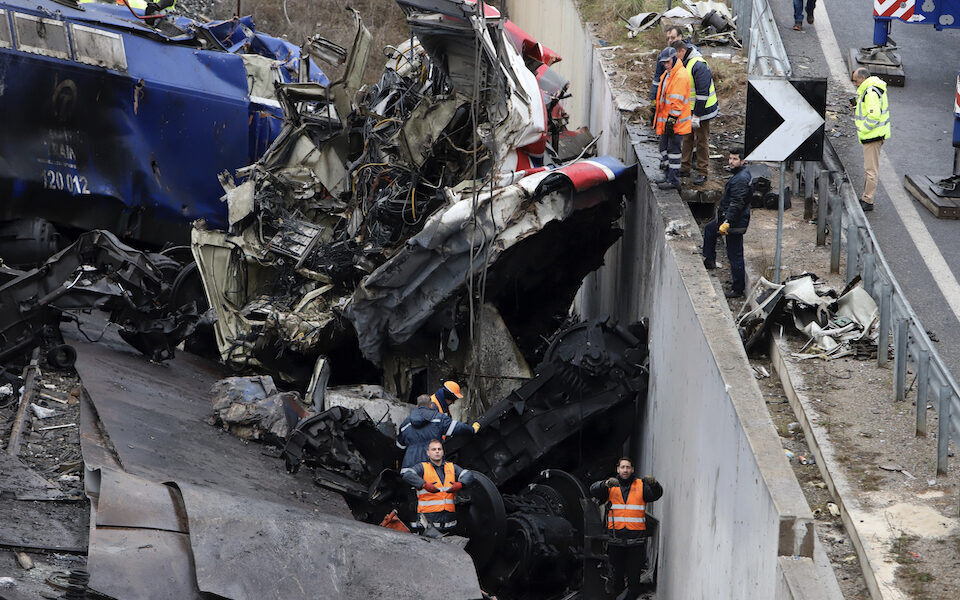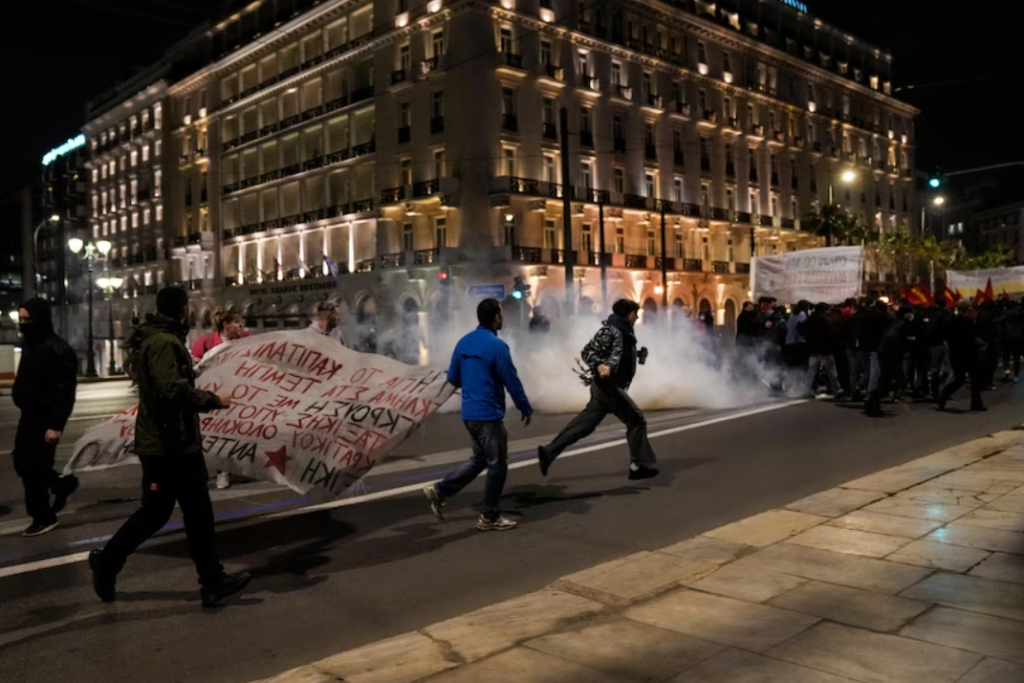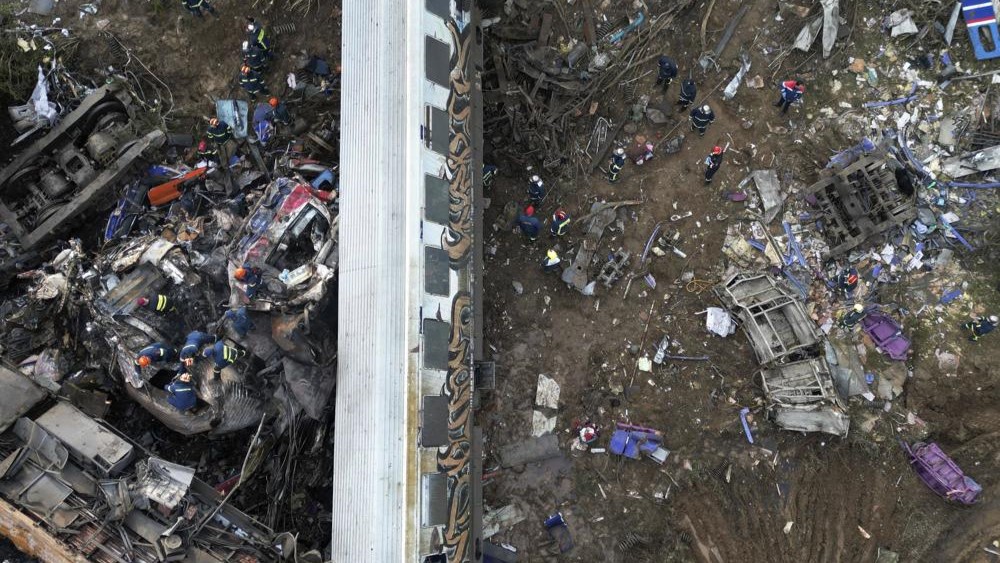Greece is in mourning as the death toll from the train crash near Larissa at Tempi grew to 57 people on Thursday night, with 56 passengers still missing, according to the Hellenic Police.
Many of the victims were thought to be university students returning home after a long holiday weekend.
Rescue operations are still underway under difficult conditions, with the focus now being on the third carriage that is almost completely overturned. The search is expected to conclude on Friday.
“It will be very difficult to find survivors, due to the temperatures that developed in the carriages,” 40-year-old rescuer, Constantinos Imamidis, told Reuters.
“This is the hardest thing, instead of saving lives we have to dig out bodies.”

The high-speed passenger train with more than 350 people on board crashed head-on with a freight train near the city of Larissa late on Tuesday.
Greece’s Prime Minister, Kyriakos Mitsotakis, rushed to the scene at Tempi and called a three-day period of official mourning, ordering flags to fly at half mast. He said it appeared the crash was “mainly due to a tragic human error.”
Greek police arrested a local stationmaster who was in charge of signalling over the deadly train crash, and Greece’s Transport and Infrastructure Minister Konstantinos Karamanlis announced his resignation.
‘This crime will not be forgotten’:
Thousands of Greeks took to the streets on Wednesday for a second day of protests as anger mounts over the loss of life from the train crash.
Braving torrential rain and thunder, demonstrators marched from the office headquarters of Hellenic Train in Athens to the Greek parliament, chanting “this crime will not be forgotten.”

Highlighting the growing sense of fury over the crash, protesters hurled rocks at the Athens rail company offices on Wednesday evening before being dispersed by volleys of teargas fired by riot police. Protests also broke out in Thessaloniki.
The protests came hours after the Greek government conceded that rail projects nationwide had been beset by “chronic public sector ills.”
In the first public admission of the problems plaguing the railway network, Greek officials said efforts to overhaul the system had failed and authorities would look into the causes of the accident and delays in implementing rail projects.
Source: Ekathimerini, AP News, The Guardian.

